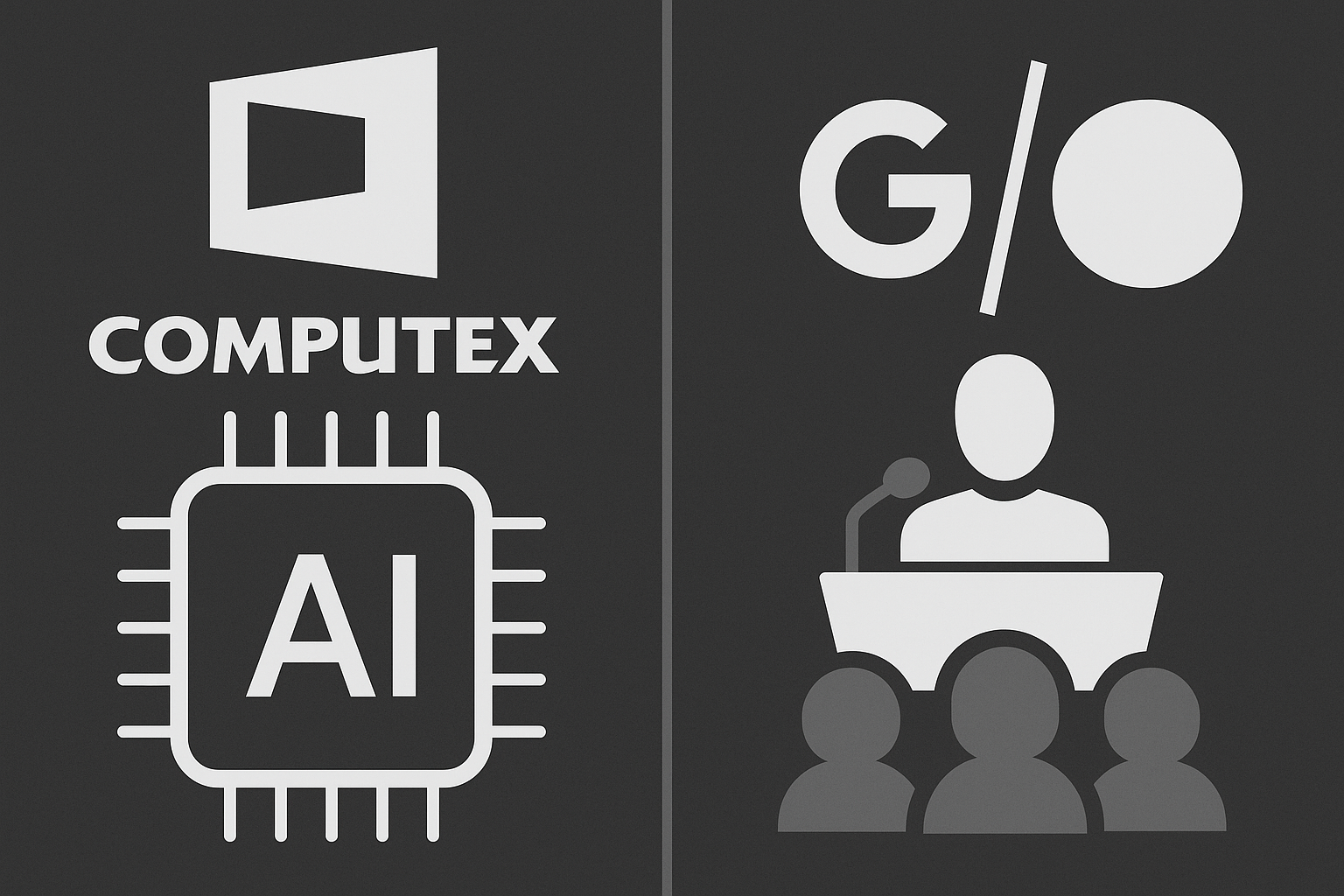This week brought a whirlwind of innovation as two of the biggest tech events, Computex 2025 in Taipei and Google I/O 2025 in California, showcased the future of technology. From AI breakthroughs to unique hardware, the announcements promise to change how we work, play, and connect.
These conferences reveal how companies like Google continue to push AI and digital assistants, while Computex spotlights the latest in gaming devices, ergonomic peripherals, and affordable wearable tech. The combined impact of these events shapes the digital ecosystem in exciting ways.
What’s Happening & Why This Matters
Google I/O: AI-Powered Assistants and Next-Gen Tools

At Google I/O, the spotlight is on AI’s integration into daily life. The introduction of Project Astra shows a universal AI assistant that handles complex real-world tasks seamlessly. Whether searching for bike repair tutorials or managing appointments, Astra blends multiple information sources to act as a faithful personal assistant.
Google’s Gemini chatbot arrives in Chrome, competing with ChatGPT by offering context-aware assistance directly in your browser. Gemini can summarize pages, answer questions, and recall information from previous browsing, improving productivity and comprehension.
Another browser-focused AI, Project Mariner, performs tasks like researching real estate or shopping, acting autonomously within Chrome to help users navigate complex decisions.
On the creative front, Google updated image and video tools. Imagen 4 enhances photorealistic image generation with high resolution and texture improvements, now integrated with Google Workspace. Video tool Veo 3 offers lifelike AI video creation, available to Google AI Ultra subscribers.
Finally, Google improves Google Meet with real-time speech translation, currently supporting English-Spanish conversations and expanding soon. This feature promises easier global communication for users and businesses.

Computex 2025: Gaming, Ergonomics, and Affordable Wearables
Computex highlights gaming innovation with MSI’s Claw A8, a handheld Windows PC powered by AMD’s Ryzen Z2 Extreme chip. The device includes a front camera and mic, allowing gamers to play hands-free and enjoy extended battery life. Though no release date is announced, it arrives just as Nintendo Switch 2 launches.

Ergonomic design also shines at Computex with Asus’ ROG Falcata, a split wireless keyboard tailored for gamers. Its magnetic detachment offers more mouse space and ergonomic comfort, catering to long gaming sessions.

Acer debuts a titanium smart ring priced at $199 in wearables, making health tracking more accessible. Unlike pricier competitors, Acer’s ring requires no subscription and tracks heart rate, sleep quality, and blood oxygen for four days per charge. It arrives this summer in black or rose gold.
Computex also impresses with creative PC cases, ranging from colorful themed designs to units featuring built-in beer and wine taps. MSI collaborates with Japanese studio Okadayo to produce a limited edition laptop lid inspired by Hokusai’s iconic Great Wave print, blending art with tech.
TF Summary: What’s Next
The fusion of AI innovations at Google I/O with Computex’s hardware breakthroughs signals an exciting tech landscape ahead. Expect more competent digital assistants, immersive gaming gear, and affordable, stylish wearables.
AI’s deep integration and user-centric design will benefit consumers and professionals, while Computex’s hardware creativity will extend ergonomics and personalization’s boundaries.
— Text-to-Speech (TTS) provided by gspeech


